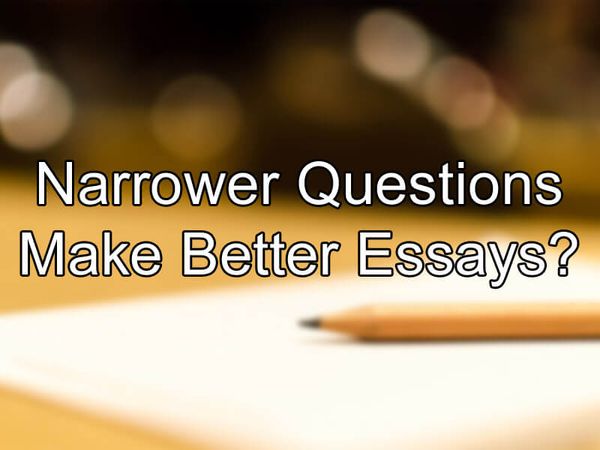
Society Nowadays

Teenagers can be very strong in their arguments, especially when it touches their personal life. Prohibit them from doing what they really like, or compel them to do what they detest. They are going to blow your mind with tons and thousands of statements proving their point of view. But what happens when they have to prove their point in an academic writing, for example? This power just disappears.
Many English teachers ask their students suggestive questions in order to show them the right path. They often use such vague verbs as “Consider,” “Analyze” or “Examine.” But, as a result, students just scratching their heads and wondering about what their teacher just asked them to do.
For example, let’s imagine you are an English student trying to give an answer to the following question: “Ponder the role of heroism in The Odyssey. Analyze the contact between Telemachus and Penelope. What is Homer trying to tell us about Telemachus? And how does he inform us about Odysseus’ actions?” In most cases (thanks to the middle school), your answer will begin with words: “The role of heroism in Homers’ Odyssey is…” which is a very complicated start for the students who have problems with expressing their point of view and formulating a comprehensive argument.
Now another question: “Is Telemachus a hero?” Naturally, your answer will begin with "Yes or No." You might further define what it is to be a hero and then give a careful and clear explanation about why or why the character does or does not fit that definition.
Many teachers I had a conversation with, disagree with an idea of narrow inquiries, such as “Yes or No”, or “Why” questions. Some support the idea of making students transit broad questions to focused answers. I don’t totally disagree with them. It is very beneficial, but only when a student know how to do it (which is unfortunately not how it is).
Other teachers simply don’t like the idea of telling their students what to write. I understand their point of view. But “Yes or No” questions are very efficient because of their rigid frameworks. And it doesn’t mean that a student can’t make the answer broader. If an advance student can expand the topic, he/she can easily do it.
Students have to clearly see the connection between their inner abilities to give arguments and their academic essays. That’s why I start my lessons in high school with a proposal to adopt an argument from their lives into an essays’ outline. The topic doesn’t really matter. They have their main argument, which they back up with reasons and support with some pieces of evidence. Finally, they analyze their evidence and prove their point of view. What I am trying to teach them is to use such a structure in order to successfully express their point about any novel, play, film or whatever. That’ll be.
0
Preparing Orders
0
Active Writers
0%
Positive Feedback
0
Support Agents